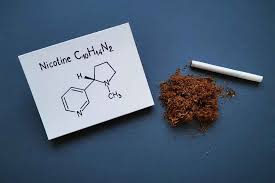
Breaking News
 COMEX Silver: 21 Days Until 429 Million Ounces of Demand Meets 103 Million Supply. (March Crisis)
COMEX Silver: 21 Days Until 429 Million Ounces of Demand Meets 103 Million Supply. (March Crisis)
 Marjorie Taylor Greene: MAGA Was "All a Lie," "Isn't Really About America or the
Marjorie Taylor Greene: MAGA Was "All a Lie," "Isn't Really About America or the
 Why America's Two-Party System Will Never Threaten the True Political Elites
Why America's Two-Party System Will Never Threaten the True Political Elites
 Generation Now #7 – Youth in Davos | Youth Pulse 2026 | Skills That Matter
Generation Now #7 – Youth in Davos | Youth Pulse 2026 | Skills That Matter
Top Tech News
 How underwater 3D printing could soon transform maritime construction
How underwater 3D printing could soon transform maritime construction
 Smart soldering iron packs a camera to show you what you're doing
Smart soldering iron packs a camera to show you what you're doing
 Look, no hands: Flying umbrella follows user through the rain
Look, no hands: Flying umbrella follows user through the rain
 Critical Linux Warning: 800,000 Devices Are EXPOSED
Critical Linux Warning: 800,000 Devices Are EXPOSED
 'Brave New World': IVF Company's Eugenics Tool Lets Couples Pick 'Best' Baby, Di
'Brave New World': IVF Company's Eugenics Tool Lets Couples Pick 'Best' Baby, Di
 The smartphone just fired a warning shot at the camera industry.
The smartphone just fired a warning shot at the camera industry.
 A revolutionary breakthrough in dental science is changing how we fight tooth decay
A revolutionary breakthrough in dental science is changing how we fight tooth decay
 Docan Energy "Panda": 32kWh for $2,530!
Docan Energy "Panda": 32kWh for $2,530!
 Rugged phone with multi-day battery life doubles as a 1080p projector
Rugged phone with multi-day battery life doubles as a 1080p projector
 4 Sisters Invent Electric Tractor with Mom and Dad and it's Selling in 5 Countries
4 Sisters Invent Electric Tractor with Mom and Dad and it's Selling in 5 Countries
The Nicotine Psyop That Made Big Pharma TRILLIONS--and Kept You Sick

They told us nicotine was an addictive poison. That it caused cancer. That it was the reason Grandpa died coughing up black tar in a hospital bed. But what if the real reason they went to war against nicotine had nothing to do with health—and everything to do with power and profit? Join Dr. Bryan Ardis and I as we dive into one of the greatest medical psyops of all time.
The "Highly Addictive" Lie You've Been Programmed to Believe
Ask anyone what comes to mind when they hear the word nicotine, and 95% will answer: "It's addictive." That notion has been seared into our minds by decades of psychological conditioning, repeated ad nauseam across warning labels, commercials, and news reports.
It's classic Operation Mockingbird-style brainwashing—repetition as truth.
"For 45 years, I believed nicotine was addictive," says Ardis. "Then I did the research."
What he found changed everything.
Medical History Buried: 400 Years of Proof That Tobacco Heals
Ardis unearthed a medical textbook titled "A History of the Medicinal Use of Tobacco: 1492–1860." Inside it: centuries of documented case studies, clinical uses, and doctor testimonials proclaiming tobacco as:
A cure for cancer
A remedy for obesity
A treatment for heart disease, tumors, inflammation, ulcers, dementia, parasites, and more
In fact, many physicians referred to it as "the panacea of panaceas"—a universal medicine for nearly all human ailments.
"From 1492 to 1860, you'll find textbooks and peer-reviewed medical literature using tobacco to treat nearly every major disease," Ardis explains. "It was the cornerstone of medicine for centuries."



